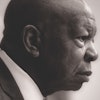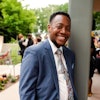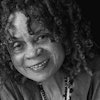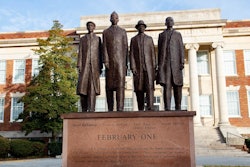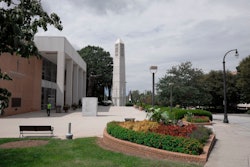Do no harm.
More than just a guiding principle for medicine, this philosophy permeates the life and livelihood of the Rev. Dr. Jamie Washington — an educator, author, student affairs administrator, pastor, consultant, president and co-founder of the Social Justice Training Institute (SJTI), past-president of the American College Personnel Association (ACPA), and much more. Washington’s expertise is sought after and granted across religious, government, corporate, and educational settings.
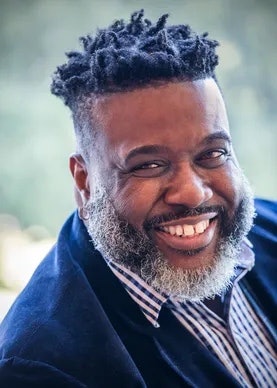 Dr. Jamie Washington
Dr. Jamie Washington
“I try to spend my days choosing love, choosing hope, choosing patience, and choosing humanity,” says Washington, adding that by doing so, he is “honoring the power of choice.” Washington is the president and co-founder of Washington Consulting Group (WCG). Since 2001, he and his organization have connected with educational leadership and others, offering them the power of choice while educating them on intersectional identity and how they can build an environment that is welcoming and supportive of those marginalized by society.
It isn’t easy work. Institutional transformation can take up to a decade of intentional effort. Yet Washington’s warm and easy-going nature, and his deliberate choice to “find, honor, and see people’s humanity,” allows Washington to do what often seems impossible: take disparate, cold, or fearful feelings, and reroute them all onto pathways of love and understanding.
“He has a way of sharing information and getting people engaged, learning, reflecting on bias, stereotypes, practices, and aggressions,” says longtime friend and colleague Dr. Kathy Obear, founder of The Center for Transformation and Change and co-founder of SJTI. “There’s something about him — it’s magical. His spirit, his confidence.”
Obear, Washington, Vernon Wall, and Dr. Maura Cullen came together to found SJTI in June 1998 to expand people’s understanding through an intersectional lens.
“We believed very much that injustice anywhere was a threat to justice everywhere,” says Washington.
The first session, Washington acknowledges, did not go very well. What the four SJTI leaders learned, he says, is that it was difficult for attendees to focus on their privilege, but it was just as hard to focus on their minoritization. So now, SJTI approaches intersectional experiences one lens at a time. As an example, in the five-day experience, the cohorts examine other identities through the lens of race, “until the last day, when we pull back, and see the learning from being able to stay in that space, and how that looks with other identities,” says Washington.
This environment can be intentionally triggering, and it doesn’t always bring out people’s best. When Washington was in his 20s, he met Dr. Joan Steinau Lester, author then leader of multicultural education for the faculty at Smith College in Northampton, Massachusetts. Lester saw potential in him and invited him to co-lead. During one session, a white man said something “offensive” and “racist,” as Washington and Lester characterize it.
“And Jamie went after that person. That evening, [Jamie and I] met in my room, and I said, ‘Jamie — we can’t invite people to open themselves deeply and expose their vulnerabilities and then attack them,’” says Lester. “He said, ‘Well, what they were saying was racist,’ and I was like, ‘Yeah — but we’re there like a therapist.’ And the thing that impressed me so much about Jamie was, he got it immediately.”
Washington characterizes this experience as “a defining moment for the next 35 years.”
“There’s a tension — as a Black person, or a queer person — I shouldn’t have to be the person to teach you [about those identities],” says Washington. “But, in your role of diversity, equity, and inclusion officer, as a residence hall director, in those roles as educators in that space, it is your educational responsibility [to teach those identities].”
But, Washington added, it is then the responsibility of the institution to understand the labor these officers and leaders take on.
“There is an additional emotional and psychological toll that’s taken when you have to hold the space, when it’s not just the content but also your person that’s being challenged,” says Washington.
The journey to finding understanding and empathy for those he disagrees with has not always been steady. As an out, queer, Black man, Washington faced external and internal hurdles. Growing up, Washington says he always knew that he was attracted to the same gender. But he knew the church did not approve of homosexuality. Higher education gave him a chance to explore something he had never tried before — while pursuing his first master’s degree in higher education and student affairs, and counseling and counselor education, at Indiana University at Bloomington, he was required to take group counseling courses.
“That is the place where I actually begin to do the healing and reconciliation around sexual orientation and religion,” says Washington.
Class therapy laid the groundwork for Washington to start one of the most important chapters of his life, his call to religious service. By pursuing his Masters of Divinity degree at Howard University in Washington, D.C., he began to heal trauma caused from shame or un-affirming LGBTQIA+ experiences in a church setting. Often, this put him at odds with parishioners or church leaders. But through standing up for the youth, he found a way to stand up for himself as well.
Dr. Durryle Brooks was 15 years old when Washington stood up for him at their local church. Brooks, a young gay man on the cusp of adulthood, found acceptance and a father figure in Washington. He has since been adopted by Washington and has chosen to follow in his father’s footsteps as founder and CEO of Love & Justice Consulting, LLC.
“I’ve seen in real-time how people can change in the workshops and sessions because of the humanity and love that he brings to it. Love, at its best, helps people find their own light,” says Brooks.
Coming to grasp with the sheer number of people who have been influenced, taught, or led by Washington is not easy. When asked, Washington himself cannot come up with a figure. But evidence of his reach can be seen at conferences. If you ever can’t find Jamie, his friends say, just look for the crowd.
That was how Dr. Debra Y. Griffith, chief equity programs officer at Alliance College-Ready Public Schools, first came to know him.
“In 1999, I had an opportunity to go to two national conferences for higher education, and I just saw all these people walking behind him, trailing him — like — what is this?” Griffith says with a laugh.
She began to know him better by participating in SJTI, and in the years since, has called on Washington to engage with young Black and Latinx men in higher education, to help roll out an anti-racism and inclusion action plan, and train cabinets, staff, provosts, and presidents.
Brooks says that he constantly hears from others how Washington was able to positively impact and effect their lives.
“The thing I hear the most is, “Because of what [Washington] said or did in that space, it let me know that I was not alone,’” says Brooks. “When I go out and look at the field, there are thousands who say, ‘Thank you. It helped me navigate higher education. It helped me get clearer about what I want to be, tolerate, and accept. Because he’s taking a human-centered approach.” Putting the human first is revolutionary, Brooks adds.
“People are touched by that. And then, they go back into their systems and demand it,” says Brooks. “To have people know what it really means to be centered in an organization, be touched by his work, and go back and ask for that themselves — it has the potential for exponential impact in the world.”
That exponential impact is exactly what Washington hopes will carry his words, actions, and hopes into the future. As he contemplates retiring after 40 years in higher education, he acknowledges the scores of mentors who led him on his path, and the mentees he hopes will carry the baton into the future. For their part, his mentees say they have learned from the best how to bring love, light, and peace into the world one keynote, conference, or training session at a time.


